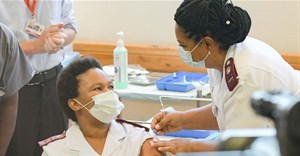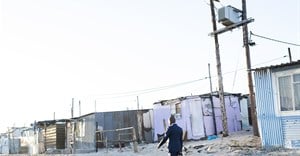
Subscribe & Follow
Jobs
- Lecturer: UX and Digital Design (Part-Time) Durban
- Debtors Clerk Pretoria
- Lecturer - School of Law (Permanent) Pretoria
- Lecturer: Afrikaans Language (School of Education) Durban
- Lecturer - Teaching Practice (School of Education) Durban
- Lecturer - Political Studies (Fixed Term) Pretoria
- Lecturer – Management Modules (Fixed Term) Pretoria
- PR Coordinator Johannesburg
- Student Recruitment Advisor Waterfall Midrand
- Lecturer: Philosophy & African Studies (Permanent) Pretoria
Lack of information hampers decisions

The result is an education system that fails to produce useful graduates and leads to a skills mismatch between what higher education is supplying and what the labour market is demanding.
The Labour Market Intelligence Research Project, funded by the higher education department and led by the Human Sciences Research Council, is an attempt to find answers to some of the pressing questions.
"We do not know how many people are doing artisan training, how many students are in private institutions or why skills training does not necessarily lead to jobs," says Prof Peliwe Lolwana, head of the Centre for Researching Education and Labour at the Wits School of Education.
"We need a better understanding of the relationship between our education system and the economy," Lolwana says
The project aims to set up systems to gather reliable data on the country's skills needs, as well as finding ways to predict supply and demand in the labour market.
Policy development
Government will be able to use this information to develop appropriate policies for education, training and labour. It will also indicate which institutions need to be beefed up so the higher education budget gets more tangible value from the money it spends.
The private sector would use the information to plan its human resource needs. Prospective students will be able to choose fields of study that will make them more attractive to employers.
If government and companies can make better decisions about matching skills demand and supply, it should lead to increased productivity, economic development and social justice, according to the higher education department.
The three-year project has been divided into six sections, split up between the Development Policy Research Unit at the University of Cape Town and the Education Policy Unit at the University of the Witwatersrand. Other partners include research institutes, universities and independent consultants.
Government has allocated R75m to fund the research.
Lolwana's team will research skills forecasting and develop a supply and demand model.
Another team is researching why SA is not producing quality artisans and finding ways to address this. The project will also look at ways to better align public and private education and training systems.
The higher education department wants the project to produce labour market information at sector, occupational and regional levels.
Source: Financial Mail via I-Net Bridge
Source: I-Net Bridge

For more than two decades, I-Net Bridge has been one of South Africa’s preferred electronic providers of innovative solutions, data of the highest calibre, reliable platforms and excellent supporting systems. Our products include workstations, web applications and data feeds packaged with in-depth news and powerful analytical tools empowering clients to make meaningful decisions.
We pride ourselves on our wide variety of in-house skills, encompassing multiple platforms and applications. These skills enable us to not only function as a first class facility, but also design, implement and support all our client needs at a level that confirms I-Net Bridge a leader in its field.
Go to: http://www.inet.co.za















